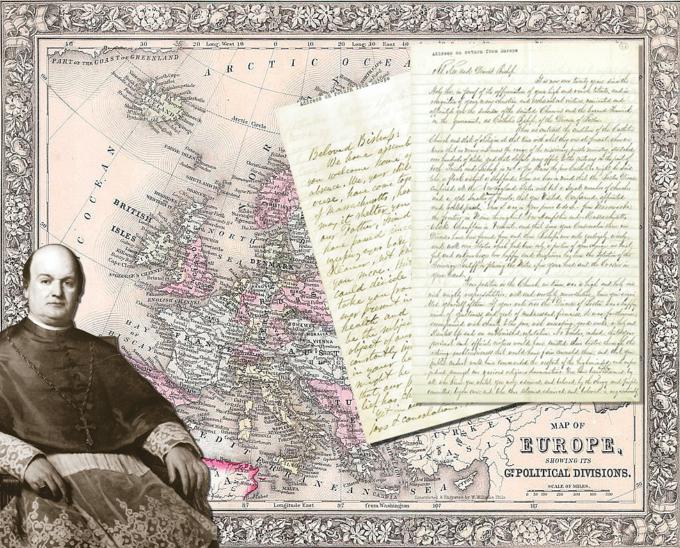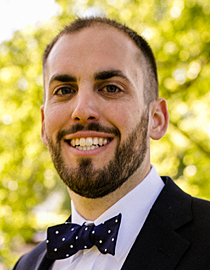
Culture

Lester
Two undated documents in the papers of Bishop John B. Fitzpatrick are addresses welcoming him home from Europe in September 1864.
This was a return from his second of two journeys across the Atlantic, the first having been in 1854. American Bishops were required to visit Rome every seven years, known as ad limina visits, and though his predecessors never fulfilled this obligation he departed with Father George Haskins on Feb. 14. They boarded a steamer departing Boston for Liverpool and, upon arrival, continued to London and then Paris.
His first order of business was to make an appeal to the Society for the Propagation of the Faith, which supports missions and missionaries around the world. The society had stopped supplying the Diocese of Boston with aid in 1845, believing it had grown to the point where it could be self-sustaining, but this was far from the truth. Boston was seeing a surge of Irish immigration due to widespread famine, and was struggling to try and support these new arrivals. His appeal proved convincing, and the society reinstated annual aid to the diocese.
Following this success, Bishop Fitzpatrick continued to Rome where both he and Father Haskins celebrated Mass on Palm Sunday at Saint Peter's Basilica. He later served a Mass with Pope Pius IX who gifted him a vestment.
There was yet more business to be conducted in Rome, and Bishop Fitzpatrick opened discussions with the Society of Jesus, or Jesuits, appealing for their help establishing a Catholic institution of learning in Boston. His writings indicate that the Jesuits responded favorably, and within a decade the order would found Boston College in the city's south end neighborhood.
As it was his first time abroad, he took the opportunity to travel for pleasure. He departed Rome on June 1, touring Italy, then in mid-July arrived in London once more. Before returning to Boston, he travelled to Dublin, where it is believed he visited several Boston seminarians who were studying at All Hallows College.
He returned to Boston, but within a few years various physical ailments would begin to afflict him, though his mind remained sharp. Working himself to exhaustion, he collapsed one day, and it was recommended he take a second trip to Europe and try to recover. Departing in May 1862, he would not return until Sept. 2, 1864. While attempting to recover, he did help arrange for Sulpician priests to teach at the seminary in Troy, New York, and it is said he advocated for the union amongst European nations, trying to dissuade them from openly aiding the Confederate States of America.
During this prolonged absence, and even upon his return, the diocese was largely overseen by his Vicar General and eventual successor, then Father John J. Williams.
Both documents seem to reference this second trip, as there are many references to the condition of his health, and how many of the priests gathered feared they would not see him again following his departure. One of the addresses ends "thanks be to God that we have seen you alive."
Other statements illustrate Bishop Fitzpatrick as a paternal figure to the priests, probably due to the fact they worked closely together as a small community that served many. Furthermore, they express gratitude for his leadership, stating "we -- the Priests of your Diocese -- owe you almost everything under God; and when we assemble here together on this day as a band of brothers to welcome home our much beloved and venerated Bishop..." There is also praise for the role Father Williams filled in the bishop's absence. Writing that in him they found "a judicious guide to direct and a firm Support [sic.] on which to lean."
- Thomas Lester is the archivist of the Archdiocese of Boston.
Recent articles in the Culture & Events section
-
Building a legacyMichael Reardon
-
Scripture Reflection for Nov. 24, 2024, Solemnity of Our Lord Jesus Christ, King of the UniverseDeacon Greg Kandra
-
Seeds of graceMolly M. Wade
-
The dedication of St. Francis Chapel in the Prudential CenterThomas Lester
-
Honeybees are taking over for canariesDeacon Timothy Donohue


















